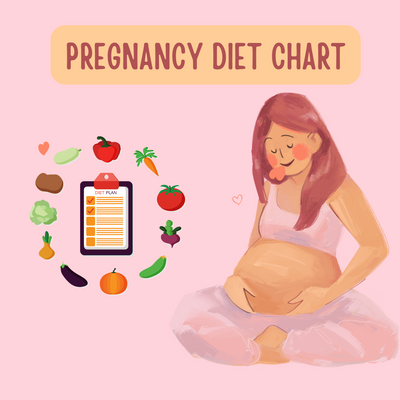How to Stop Motions during Pregnancy

Pregnancy is a beautiful and transformative journey for women, but it can also come with its fair share of challenges. One common issue that many expectant mothers face is experiencing motion sickness or nausea during pregnancy. This discomfort can make travelling or even simple activities a struggle. In this article, we will explore effective ways to prevent and manage motion sickness during pregnancy, allowing you to enjoy this special time to the fullest.
Understanding Motion Sickness During Pregnancy
Motion sickness is a common condition characterised by nausea, dizziness, and vomiting that occurs when your body senses motion but your eyes and inner ears don't agree on what is happening. During pregnancy, the hormonal changes in your body can make you more susceptible to experiencing motion sickness.
Causes of Motion Sickness in Pregnant Women
There are several factors that contribute to motion sickness during pregnancy:
Hormonal Changes:
The surge in hormones, particularly estrogen, and progesterone, can affect the part of your brain responsible for regulating balance and nausea, making you more prone to motion sickness.
Sensitivity to Sensory Input:
Pregnancy can heighten your sensitivity to sensory input, including motion, which can trigger motion sickness more easily.
Changes in Blood Circulation:
The increased blood volume and changes in blood circulation during pregnancy can affect the inner ear, leading to feelings of dizziness and nausea.
1. Tips to Prevent Motion Sickness
Taking proactive measures to prevent motion sickness can help you enjoy a smoother journey during pregnancy. Here are some useful tips:
Choose the Right Seat:
When travelling by car, opt for the front seat or the seat next to the window. This position allows you to see the road ahead and provides better ventilation, reducing the likelihood of motion sickness.
Fresh Air and Good Ventilation:
Ensure there is fresh air circulating in the vehicle. Open a window slightly or use the air conditioning to keep the air fresh and prevent stuffiness.
Take Breaks:
During long car journeys, plan regular breaks to stretch your legs and get some fresh air. This can alleviate the symptoms of motion sickness and help you relax.
Focus on the Horizon:
Fixing your gaze on a stationary object in the distance, such as the horizon, can help recalibrate your senses and reduce motion sickness.
Avoid Strong Odours:
Strong smells can trigger nausea, so try to avoid places with overpowering odors, such as gasoline stations or restaurants with strong cooking smells.
2. Natural Remedies to Relieve Motion Sickness
If you prefer natural remedies, several options can help alleviate motion sickness symptoms:
Ginger:
Ginger is a well-known natural remedy for nausea. You can try ginger tea, ginger candies, or ginger capsules to help ease motion sickness symptoms.
Peppermint:
Peppermint has a soothing effect on the stomach and can help relieve nausea. Sucking on peppermint candies or sipping peppermint tea can provide relief.
Acupressure Wristbands:
Acupressure wristbands work by applying pressure on specific points on your wrists, which can help reduce the symptoms of motion sickness.
Deep Breathing and Relaxation Techniques:
Practising deep breathing exercises and relaxation techniques can help calm your body and mind, reducing the intensity of motion sickness symptoms.
3. Lifestyle Adjustments for Managing Motion Sickness
In addition to the tips and remedies mentioned earlier, adopting certain lifestyle adjustments can further aid in managing motion sickness:
Healthy Eating:
Avoid heavy meals before travelling, as a full stomach can exacerbate motion sickness. Opt for light, easily digestible meals instead.
Hydration:
Stay hydrated by drinking plenty of water. Dehydration can intensify the symptoms of motion sickness.
Rest and Sleep:
Getting enough rest and sleep can help reduce fatigue and make you less susceptible to motion sickness.
Mindful Movements:
Engaging in gentle exercises like prenatal yoga or walking can help improve your body's balance and reduce motion sickness.
4. When to Seek Medical Advice
In most cases, motion sickness during pregnancy is temporary and can be managed with the tips and remedies mentioned above.
However, if your symptoms persist or become severe, it is essential to consult your healthcare provider. They can provide further guidance and recommend suitable medication if necessary.
Experiencing motion sickness during pregnancy can be challenging, but with the right strategies and remedies, you can minimise its impact and enjoy a smoother journey. Remember to choose the right seat, focus on the horizon, and consider natural remedies like ginger and peppermint. Make lifestyle adjustments such as healthy eating, hydration, and rest to manage motion sickness effectively. If your symptoms persist, reach out to your healthcare provider for further assistance.
FAQs
1. Can I take over-the-counter motion sickness medication during pregnancy?
It is commended to consult your healthcare provider before taking any medication during pregnancy, including over-the-counter remedies for motion sickness.
2. Is it safe to travel by air during pregnancy if I experience motion sickness?
Air travel is commonly regarded as safe during pregnancy. However, if you experience severe motion sickness, it's advisable to consult your healthcare provider before making any travel plans.
3. Are there any specific foods that can help alleviate motion sickness?
While there are no specific foods guaranteed to alleviate motion sickness, some individuals find relief by snacking on plain crackers or sipping on clear liquids like water or ginger ale.
4. Can prenatal vitamins contribute to motion sickness during pregnancy?
Prenatal vitamins are an essential part of ensuring the health of both mother and baby. However, the iron content in some prenatal vitamins can cause nausea in some women. If you suspect your prenatal vitamins are contributing to your motion sickness, discuss alternative options with your healthcare provider.
5. Will motion sickness during pregnancy harm my baby?
Motion sickness itself does not harm the baby. However, the discomfort and dehydration associated with severe motion sickness can be detrimental to both the mother and the baby. It is crucial to manage and alleviate motion sickness symptoms for your well-being and that of your baby.















